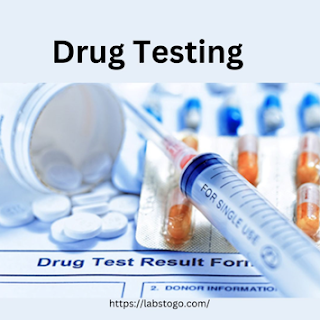What You Should Know About Prenatal Paternity Testing
So, you've just found out that you're expecting a baby and you know that your partner is the father. But are you 100% sure? Prenatal paternity testing can give you some peace of mind.
Prenatal paternity testing is a process of determining genetic paternity during a pregnancy, before the baby is born. It can be done quickly and safely, with the results available typically within one to two weeks after testing. While this process isn't necessary for everyone, it can give couples peace of mind if they are uncertain about the identity of the father. Plus, it's become increasingly popular as an option for couples who want to ensure that their child's legal rights are secure when it comes to inheritance or other matters.
In this blog, I'll share some important information about prenatal paternity testing so that you can make an informed decision. Keep reading to learn more!
How Accurate Is Prenatal Paternity Testing?
If you're considering prenatal paternity testing, the accuracy of your results is likely a top priority. You want to be sure that you can trust the information provided by the test to make decisions about your family.
Fortunately, prenatal paternity testing is highly accurate when done through a certified facility. This type of testing is able to accurately identify the father of a child with over 99% accuracy before the child is born. However, this accuracy rate may vary depending on how early in the pregnancy the test was taken, as well as other factors like maternal and fetal DNA levels.
If you are considering prenatal paternity testing to find out who the father of your baby is before it is born, it's important to contact a reliable medical facility or laboratory to ensure that you get accurate results that you can trust.
What Happens After the Test Results Arrive?
Once the test results are returned, it's up to you to decide how to use them. Depending on the outcome, if you find out that the baby isn't from the father listed on the birth certificate or other legal paperwork, you may choose to take legal action. If a DNA test proves paternity and you haven't taken any steps to establish paternity yet, you can go through the legal process to do so. In either case, it's important to have an attorney present who specializes in family law and can help navigate the specifics of your situation.
In some cases, your health insurance or Medicaid may help cover the cost of a prenatal paternity test—it pays to check first. Additionally, depending on your circumstances, there may be financial assistance available for those who cannot afford it. Talk to your doctor or local health department if this is something that applies to you.
Conclusion
All in all, Prenatal Paternity Testing is an important tool to help expectant parents answer important questions regarding the identity of a child’s biological father. It can provide the security of knowing with certainty who the biological father is, as well as giving couples the important information they need to make informed decisions about their pregnancy and the father’s role.
While Prenatal Paternity Testing does come with some risks, such as false results or misleading information, it is still a powerful tool to accurately determine paternity. With the right information, planning, and preparation, Prenatal Paternity Testing can be a beneficial and helpful experience for expectant parents.




Comments
Post a Comment